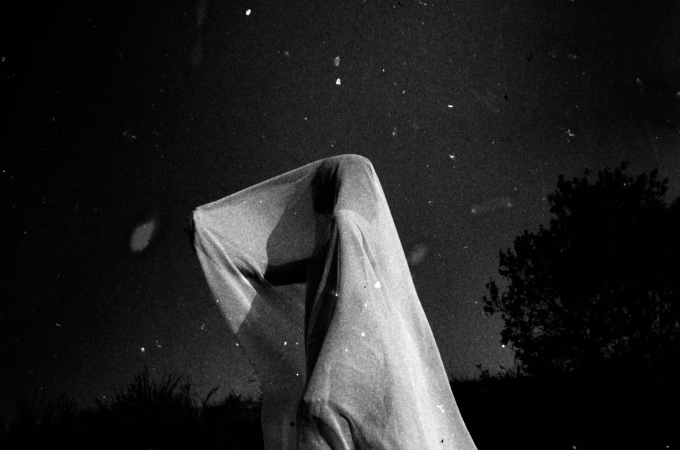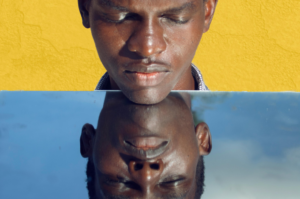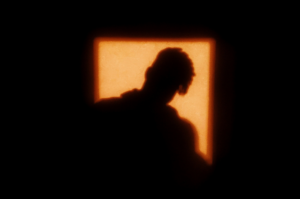
A very long time ago, long before your great-great-great grandparents were born, there was a forest somewhere in the west. Some say it was a magical forest and I agree with them because all that happened there was too queer to be anything but magical. Through the centuries, it has been given numerous names. I cannot remember all of them but there is one which I particularly like. Upendo.
The most interesting feature of this forest at the time of which I write was its residents. Within Upendo there lived a couple, a husband and a wife. I have forgotten the husband’s name because it belongs to a land far, far away where the language is odd and the customs odder. But I remember the wife’s name, it was Njelwa. Even though this story has begun with them, I must tell you now that this tale isn’t about Njelwa or her husband. In fact, they do not have much to do with this account except the beginning of it and the unfolding of grand future events. Their story is told elsewhere, it is a grand and lovely tale on its own.
Njelwa was blind and had been ever since she was a little girl. Despite this, her husband loved her fiercely. Upendo was never happier a place than when Njelwa and her husband lived there. The trees grew tall and stronger than any in the land and the flowers were brighter than any you have ever seen. They lived in a little stone house next to a clear brook that was home to many playful fish. Behind the house was a large garden where flowers, vegetables, and fruits grew. Even though she was blind, Njelwa still grew the most beautiful flowers and the sweetest fruits, a gift she had received when she was a child. It was just the two of them in the forest, and they were joyful. But very soon Njelwa was pregnant, and their joy increased. Her husband ran to a secret glade within Upendo and knelt at its center. He raised his hands and spoke with joy to the Sky, giving thanks. They named their daughter Wetesa, which means light in the language of Njelwa’s home.
One day as the father was playing with his little daughter, he noticed something that dismayed him deeply. There was a dullness in his daughter’s face. Wetesa, he discovered, was blind. But as he looked upon her with sadness, his love for her grew taller than the tallest tree in Upendo. That night, as Njelwa cooked fish that her husband caught from the brook, he came to her.
“My dear,” he said, “Do you know that I love you?”
She smiled at him and her lifeless eyes were pointed in his direction, “I do know that you love me. You love me far more than the sun which gives life and the water that sustains you.” At her answer, he smiled and embraced her.
The next night, as Njelwa rocked her sleeping baby in her arms, her husband said to her, “Do you know that I love you?”
Again, she smiled at him and responded, “I know you love me dearly. You love me more than all your kin and everything that you have left behind.” He smiled and embraced her again.
The following night, he asked her again, “Do you know that I love you?”
This time Njelwa’s irritation of the question grew, “My love, why do you ask me this question repeatedly? I know that you love me more than your own life. I know it truly and I believe it entirely. I know that despite my great burden, you love me.”
“And do you love our daughter?” he asked her, “Will you love her regardless of any flaw or ailment?” It took quite a while for Njelwa to respond, because she was thinking very hard.
But she soon said, “Yes. I love my daughter greatly and that love shall only increase in the face of her flaws.”
Her husband’s heart filled with such gladness that he was no longer sorrowful to say, “You should know, my dear, that our daughter is blind.”
For a long while Njelwa was silent. She went to sleep without kissing her daughter as she usually did or embracing her husband. Her heart was heavy with sadness. And it was only when her husband left the next morning to hunt that her tears fell. She cried silently but bitterly. Her own childhood had been fraught with much loneliness and hardship because of her blindness and the sadness she felt was not something she wished upon anyone, least of all her daughter. When she could not bear to sit in her home anymore, she picked up Wetesa and walked through the forest. She did not need her cane because she knew the way to where she wanted to go. She had been there more times than she could remember, and it was the only place she thought she could unburden her gloom. She came upon a glade that was colored brilliantly by daisies and lantanas. She walked to the center and there she laid Wetesa, who was wrapped in a blanket and fast asleep, on the grass. Then, she knelt down and turned her teary face to the sky. For several minutes she said nothing but sobbed.
“Oh, Sky,” she said in a voice so low that you would not have heard her if you were standing but a few centimeters away. “You have seen my days and you know all my sorrows. When I was a girl, you saw my pain. And though you have blessed me with much joy and peace, I still bare within me the scars of the past. I have much in this world and even though I can no longer see the flowers dance or the sparrows fly, I am content. But now I am dismayed because my daughter will grow up in darkness. I will die one day and so will the man you have given me, and this cruel world will swallow her.” For many hours she spoke to the Sky, lamenting and sobbing. So sincere was her petition that she did not feel the cold which came when the sun fell and the night was born. An innumerable host of stars dangled in the sky, great beauty that she was not able to see. Eventually, she tired, so she lay beside little Wetesa-who was awake now-and fell into a deep, unnatural sleep. Wetesa, who was normally a noisy child when she woke up, especially when she was hungry, was silent. And even though her eyes were dark and lifeless, she was looking to the sky as though there was something interesting going on above her.
By this time Njelwa’s husband was sick with worry. He had searched nearly every place he thought his wife would likely be, but she was at none of them. She was not in the garden, neither was she at the lake which was not far from their house nor was she by the caves where delicious mushrooms grew all through the year. In his desperation, he considered leaving the forest and going to that town which sat on the western edge; perhaps she was there. But he quickly shook off the thought. He knew very well that of all places, that town would be the last one that she would go to. Then some time at noon he remembered that place which his wife went to often when she was happy and whenever she was sad. The glade.
Let me remind you that Upendo was a magical forest. The husband knew of the glade, but he couldn’t always find it. There were places – illusive places – that the forest chose to reveal in its own time and for its own reasons. So, for several hours he sought after it but could not find it. The sun sank and the stars came out of hiding when at last he recognized a path between two huge Musewe trees. He hastily followed it until finally he was at the edge of the glade. There, in the middle, lay his wife and his daughter. With great relief, he prayed thankfully. Just before he took his first step toward them, something so unlikely happened which I can only disclose to you with full certainty because I was there to see it.
This is precisely what happened. The Sky shifted greatly and with His mighty voice he spoke these words, “I have heard and I have seen. I do all good things and all good things are from me.” Then, with His mighty hand, he plucked two immensely bright – yet not the brightest – stars from the sky. His hand tenderly descended to the earth and gently he placed a star in each of Wetesa’s eyes. He withdrew his arm from the earth, shifting the sky back into place. After seeing the power of the Sky, Njelwa’s husband was very fearful. He did not dare approach his wife for he still could feel the power of that great hand and the bright stars even hours later. He feared that he might be smitten and sheepishly remained on the edge of the glade, waiting in silence. The sun rose when Njelwa woke, and he took her home. There, he saw that Wetesa could see, and her eyes were of a kind that this world has seen only once. She had sparkling eyes of the richest colors and the best sight. Njelwa was filled with uncontrollable elation and sang a song which brought joy to her husband, all the beasts in the forest and even some of those dubious humans who lived to the west.
Wetesa lived and grew in the forest with her parents and surpassed her mother both in beauty and grace. Her hair was long and wild, and her skin was a rich brown. Of all her features, none were as beautiful as her eyes. They shined like the sun during the day and twinkled like the stars at night. With them, she was able to see through the dark, something that she would grow greatly in. Wetesa loved the forest and everything within it. She loved the trees which were old and spoke the deep language of the earth. She liked to play with the birds-sparrows, ravens and falcons-who taught her to sing. And she also loved to laugh. When it rained, she laughed as she ran through the storm and when the sun bit hot she laughed as she frolicked in the brook. The forest was her paradise, and she would cherish the memories of her childhood dearly for many years to come. I am old now and I have learned many things. I have learned that in this world, wherever happiness flourishes, wickedness lurks nearby.
Beyond the forest, to the east, there was a town. I will tell you more about it later. It was a powerful town because it lay within a very powerful kingdom. A river ran between the town and the forest. On the bank of this river stood an old man. To many, he’d look like a frail, old, reedy man with a long grey beard and copper skin. He was staring up at the sky very intently; because six years ago two stars which were called Nyambe and Nasilele – the lovers of the sky – had vanished or so the townspeople said. The old man knew quite well that the stars hadn’t just disappeared. They had been taken. His heart was full of great ambition, and he secretly decided that he would claim the power of the stars for himself. And he knew just where to start for his spies had told him about a little girl with eyes of starlight hidden somewhere within the forest.
The old man turned around and silently disappeared into the growing darkness.
Photo by Mariana Montrazi from Pexels










Patrick May 25, 2023 07:32
Beautiful Art.